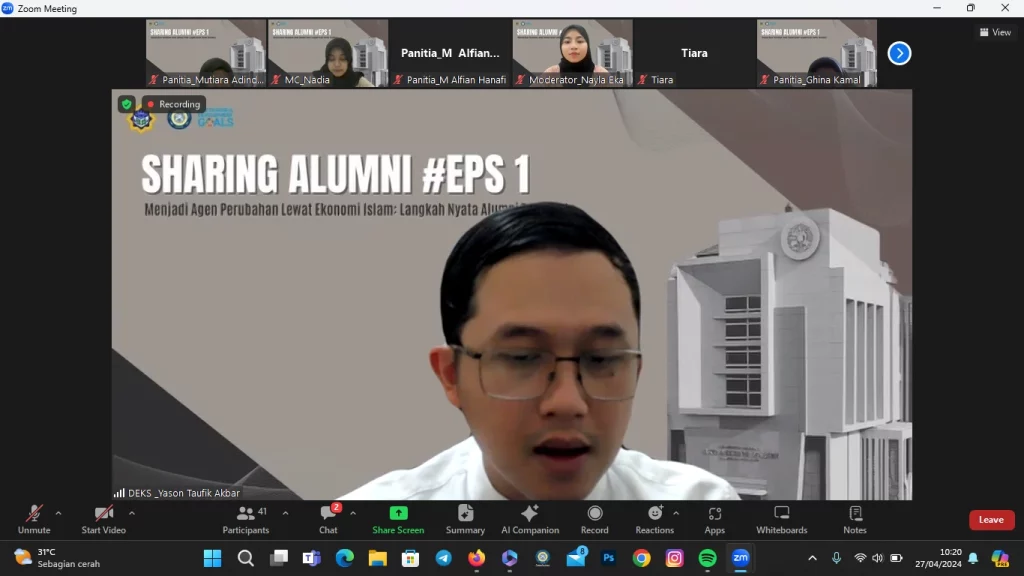UNAIR NEWS – Economic activities cannot be separated from our daily life. People need an economic system that ensures the stability of living standards, especially Muslims. Therefore, the Islamic Economics Student Association (HIMA) Universitas Airlangga organized a sharing session with alumni entitled Becoming Agents of Change through Islamic Economics: Real Steps of Past Alumni.
The event was held on Saturday, April 27, 2024, via zoom meeting. The keynote speaker was Yason Taufik Akbar S.EI MSEI. He is a first batch alumnus of the Islamic Economics study program. On the occasion, he also explained his contribution to the development of Islamic Economics in Indonesia.
He started his career in Bank Indonesia in 2013. He is now the Assistant Director of the Sharia Economics and Finance Department at the Head Office of Bank Indonesia. After 10 years of career in the field of Islamic economics, he was tasked to continue his study for master’s degree at the University of Dundee for the Islamic Finance S2 program.
Contribution to Islamic Economics development
“Indeed, people cannot separate real life from religion,” he said. According to him, as believers, we must always make religion a guideline in all aspects of life, especially in economics.
His experience working in the field of Islamic Economics has given him a great responsibility to spread the urgency of Islamic economics to the wider community. “Educating preachers, entrepreneurs, and government officials about Islamic Economics to try to get financing through Islamic methods. All these to achieve a pure Islamic society,” he explained when talking about his work experience.
Islamic Economics student potential
Islamic economics students have a special responsibility to understand Islamic values. “They must have a good understanding of aqidah, good moral values, master Islamic values and Islamic Sharia and be able to translate them into economic and financial practices,” he said.
According to Yason, UNAIR’s Islamic economics students receive quite comprehensive courses, so their academic insights are superior. Moreover, there are still many opportunities for literature development and employment in the field of Islamic Economics, so this is an opportunity that needs to be properly exploited.
Author: Afifah Alfina
Editor: Khefti Al Mawalia









